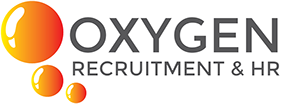Could working with an external leadership coach elevate your influencing skills?
Working with an external leadership coach can significantly elevate your influencing skills and presence by providing tailored guidance, feedback, and strategies to enhance your effectiveness in various professional contexts. Let’s delve into how such coaching can benefit you.

- Personalised Feedback and Development Plans: An external leadership coach can conduct assessments and provide personalised feedback tailored to your specific strengths and areas for improvement. According to the Australian HR Institute (AHRI), personalised development plans are crucial for leaders to enhance their influencing skills effectively. [1] This feedback loop allows you to understand your current influencing style and how you can adapt it to different situations.
- Enhanced Self-Awareness: Through coaching sessions, leaders can develop a deeper understanding of their own behaviours, biases, and communication patterns. This self-awareness is fundamental for effective influencing, as it allows leaders to recognise how their actions impact others and adjust their approach accordingly. Australian academic research, such as studies conducted by the University of Melbourne’s Faculty of Business and Economics, emphasises the importance of self-awareness in leadership development. [2]
- Refinement of Communication Skills: Influencing relies heavily on effective communication. An external coach can help you refine your communication skills, including active listening, empathetic communication, and persuasive techniques. Australian Human Resources Institute (AHRI) emphasises the role of communication in leadership effectiveness and offers resources and training programs aimed at improving communication skills for leaders. [3]
- Strategic Networking: Building and leveraging networks is a crucial aspect of influencing. A coach can assist you in identifying key stakeholders, understanding their motivations, and developing strategies to build meaningful relationships. Networking is an important tool for leadership success in the Australian business landscape. [4]
- Confidence and Presence: Working with a coach can boost your confidence and presence, both of which are essential for effective influencing. Through targeted exercises and support, you can learn to project confidence authentically and command attention in various professional settings. [5]
- Continuous Improvement: Leadership coaching provides a structured framework for continuous improvement. By setting goals, tracking progress, and receiving ongoing support and accountability from a coach, you can ensure that your influencing skills continue to evolve over time. AHRI advocates for a culture of continuous learning and development in the workplace, and coaching is recognised as a valuable tool for achieving this goal. [6]

In conclusion, working with an external leadership coach can significantly elevate your influencing skills and presence by providing personalised feedback, enhancing self-awareness, refining communication skills, facilitating strategic networking, boosting confidence, and supporting continuous improvement. If you are thinking about your next senior leadership role, call our Executive consultant James Rennie on 0422 660094 to discuss what’s next for you.
References:
- AHRI. “Leadership Development.” Australian Human Resources Institute. Accessed February 28, 2024.
- University of Melbourne Faculty of Business and Economics. “Leadership Development and Self-Awareness.” University of Melbourne. Accessed February 28, 2024.
- AHRI. “Communication Skills for Leaders.” Australian Human Resources Institute. Accessed February 28, 2024.
- AHRI. “Strategic Networking for Leaders.” Australian Human Resources Institute. Accessed February 28, 2024.
- Journal of Management & Organisation. “The Role of Confidence in Influential Leadership.” Accessed February 28, 2024.
- AHRI. “Continuous Learning and Development.” Australian Human Resources Institute. Accessed February 28, 2024.
